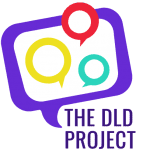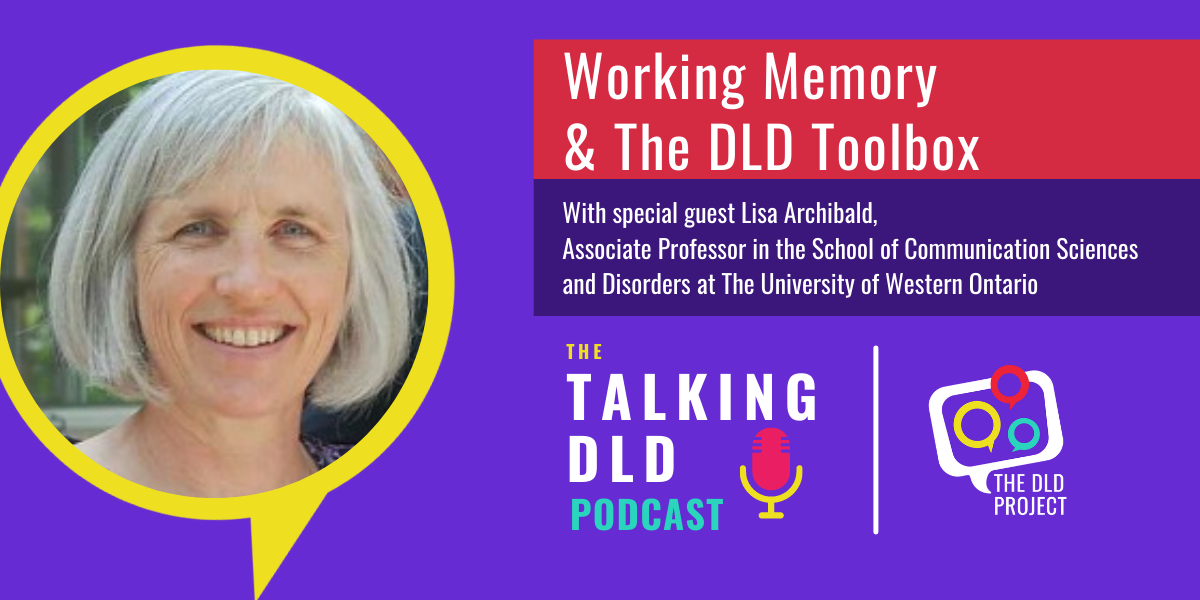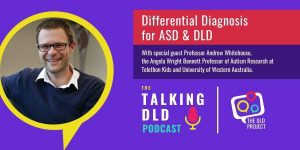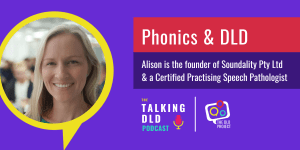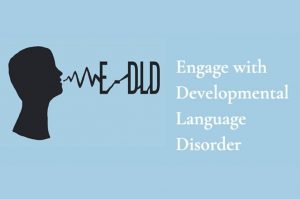Can you improve your working memory? Why is working memory so important for people with Developmental Language Disorder? In this episode of The Talking DLD Podcast, we’re tackling these questions and many more with Dr. Lisa Archibald, Associate Professor in the School of Communication Sciences and Disorders at The University of Western Ontario.
About Associate Professor Archibald
Dr. Lisa Archibald is an Associate Professor in the School of Communication Sciences and Disorders at The University of Western Ontario. One focus of her research is on links between language and working memory. She also employs a practice-based research approach to partner with school-based speech-language pathologists in exploring services for children with DLD.
About The DLD Toolbox
The Developmental Learning Disorder (DLD) Diagnostics Toolbox is a unique, international online resource designed to promote common terminology, generate discussion and build awareness about DLD.
“Advocacy starts when parents know their kid has DLD and they find other parents,” said Dr. Archibald. “That’s the power—one parent saying to another, ‘My kid has this,’ and the other saying, ‘Mine, too, we have to do something about this.’ If we are not doing a good job of giving parents the answers they need, we’re not equipping them to become active in helping their children.”
DLD has been given different names in the past, which has sometimes made it confusing for parents and professionals alike to discuss the condition. People also misidentify DLD as laziness or lack of attention.
That’s the importance of the toolkit, Archibald emphasised, because a first step in addressing this issue includes proper diagnosis within the international community of speech-language pathologists and therapists.
The toolkit helps identify DLD in school children, although other age groups dealing with this lifelong disorder are explored.
Archibald said pathologists and therapists around the world must seek a unified way of researching and discussing the issue.
“There are still questions about when this term should be used or not,” said Archibald, a member of the Raising Awareness DLD international committee and a founding member of DLDandMe. “Until now, there has been no avenue to ask practice-based questions. We need to figure out how to take what we know and apply it to our everyday work. There needs to be consensus.”
Consistency in diagnosis can then allow for advocacy in helping families and teachers to address the disorder.
Resources discussed in this episode
- Avoiding Working Memory Overload in Students with LDs – Dr. Theresa Pham | Read it HERE
- Evaluating the Modified Shortened Token Test as a working memory and language assessment too | Watch it HERE
- Working memory and language learning: A review | Access the journal HERE and HERE
- The Canadian SLP Blog | Read it HERE
- Language & Working Memory Lab | Access the website here
